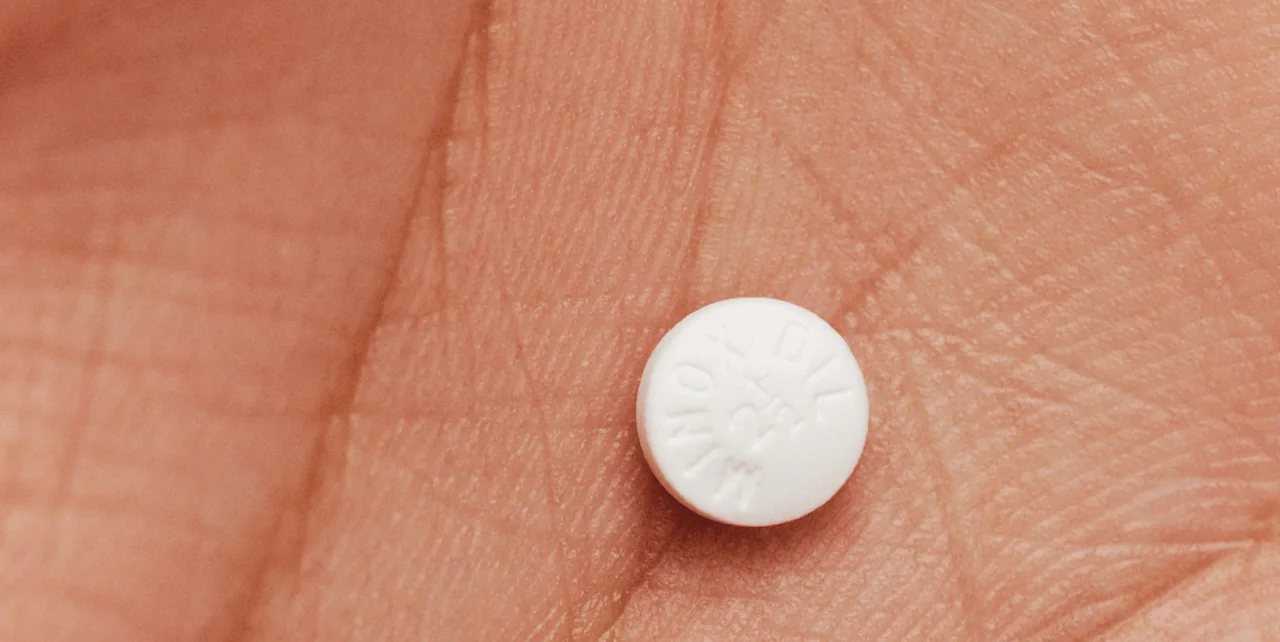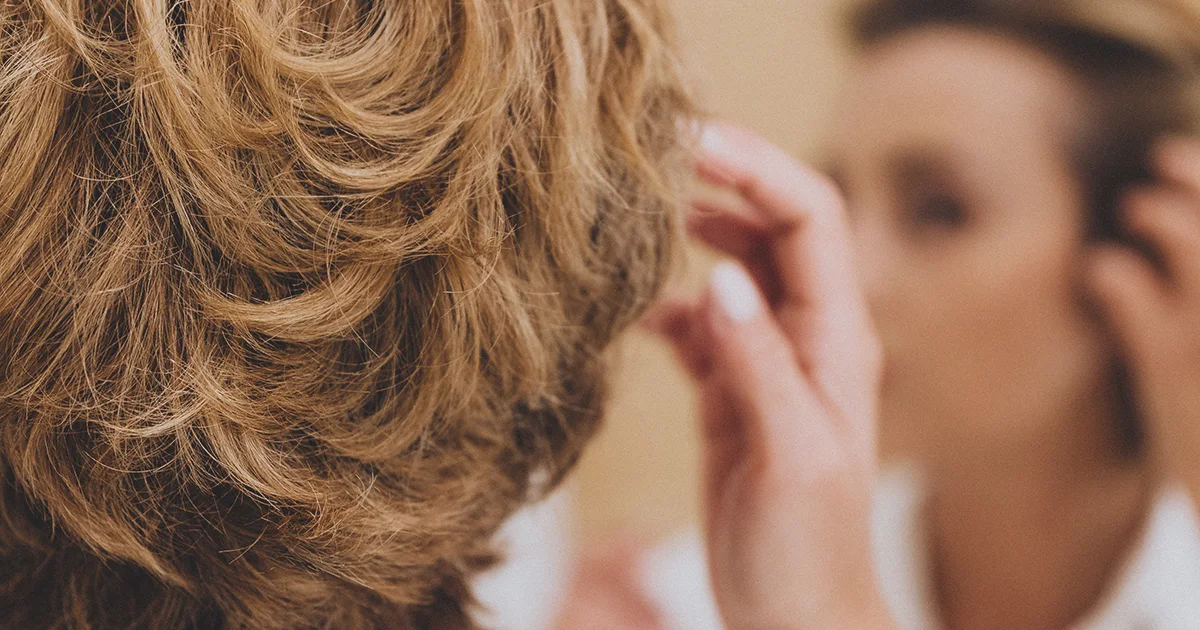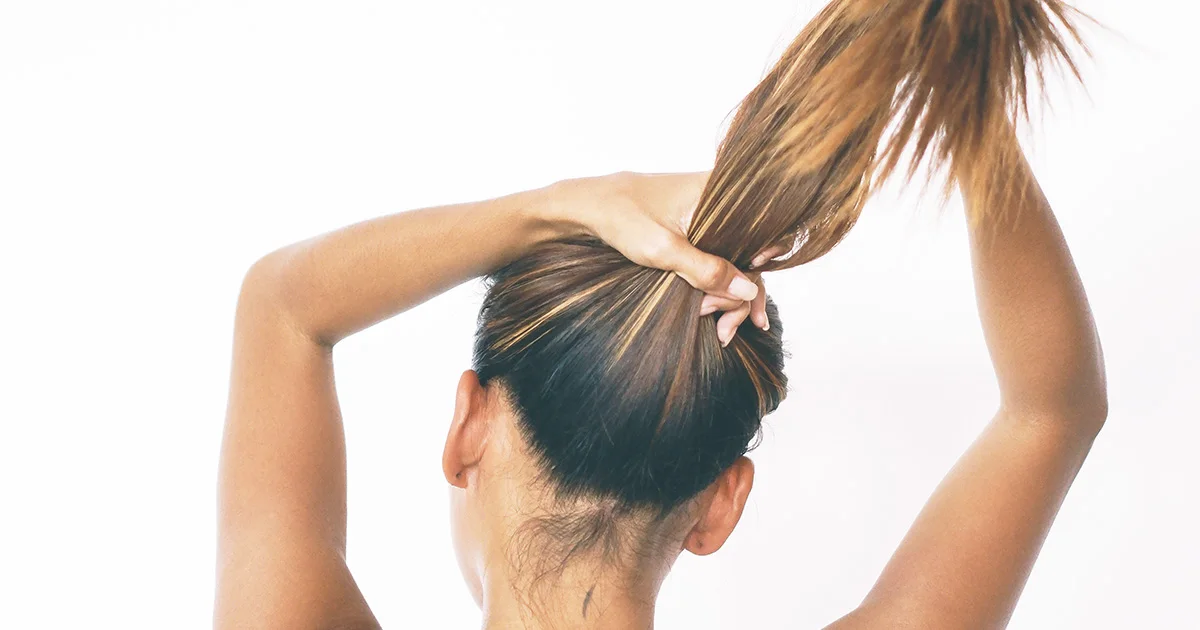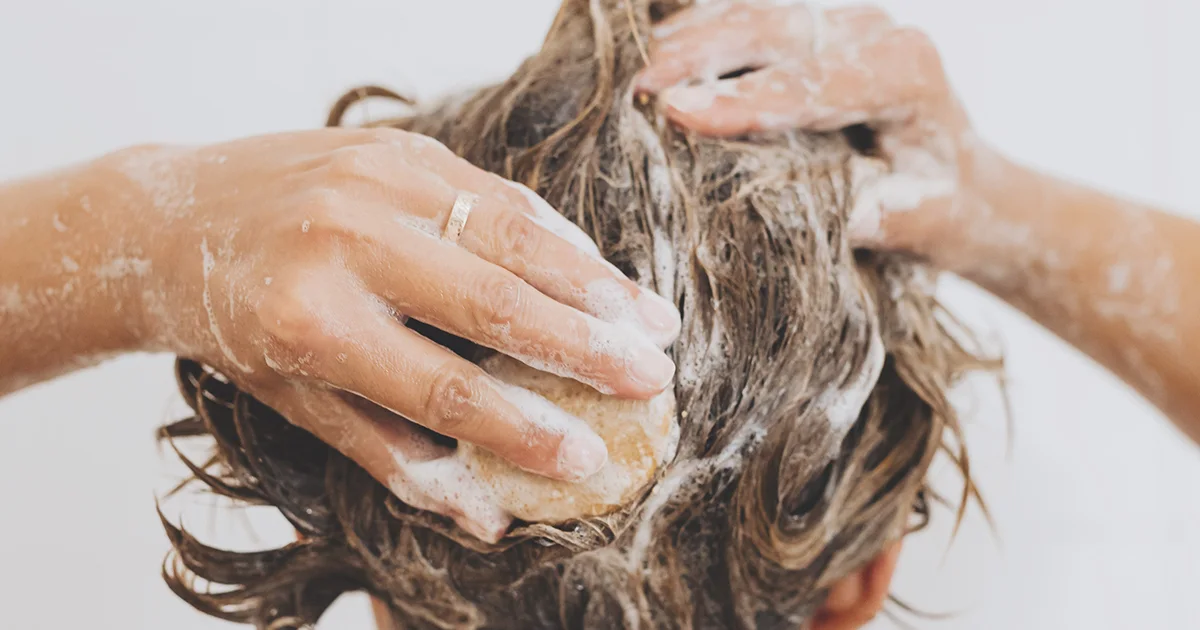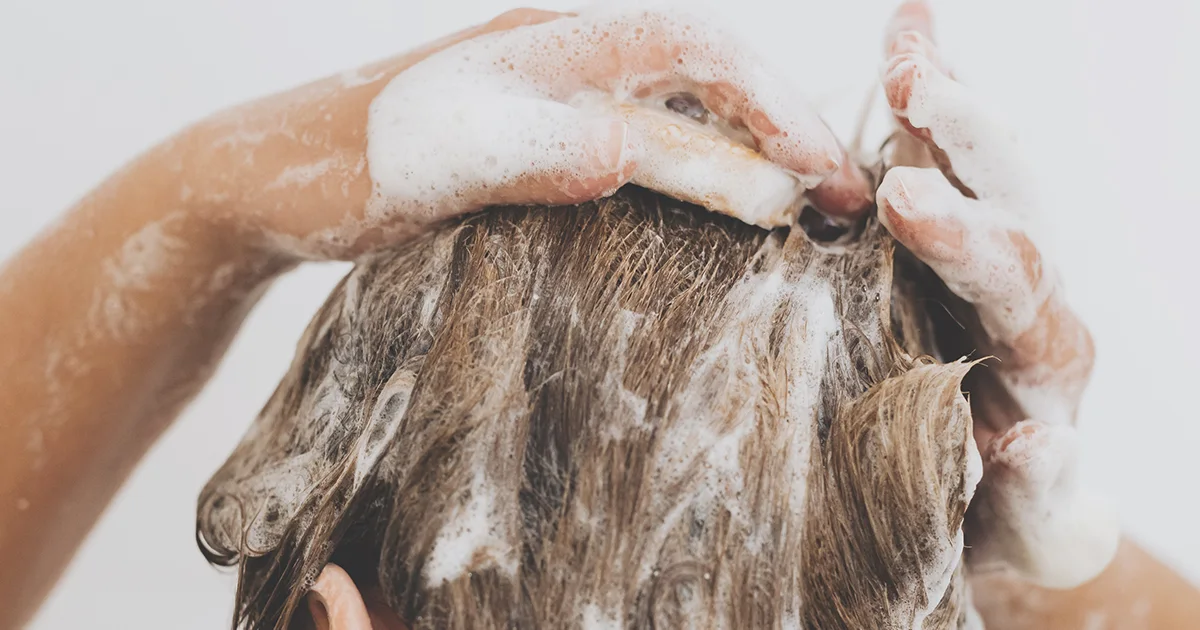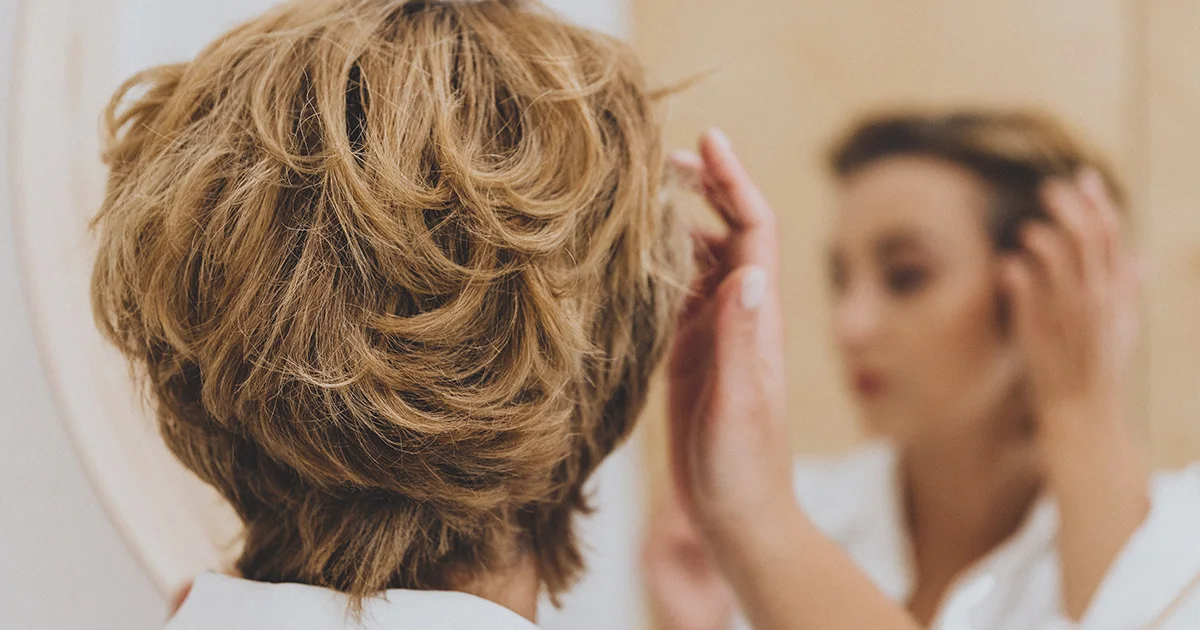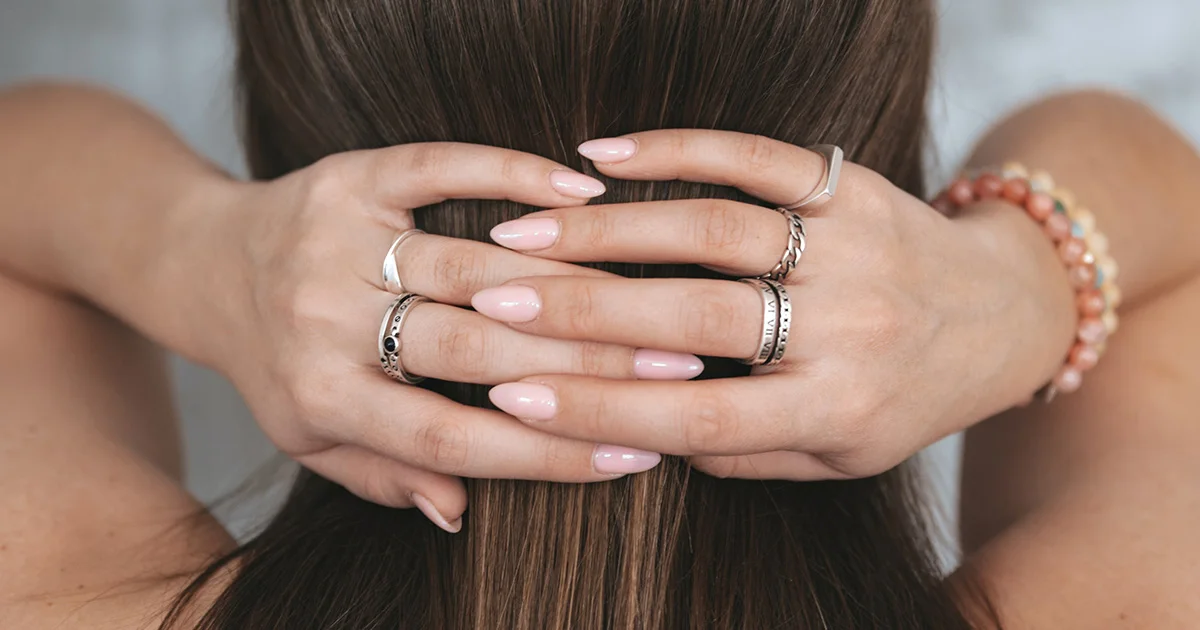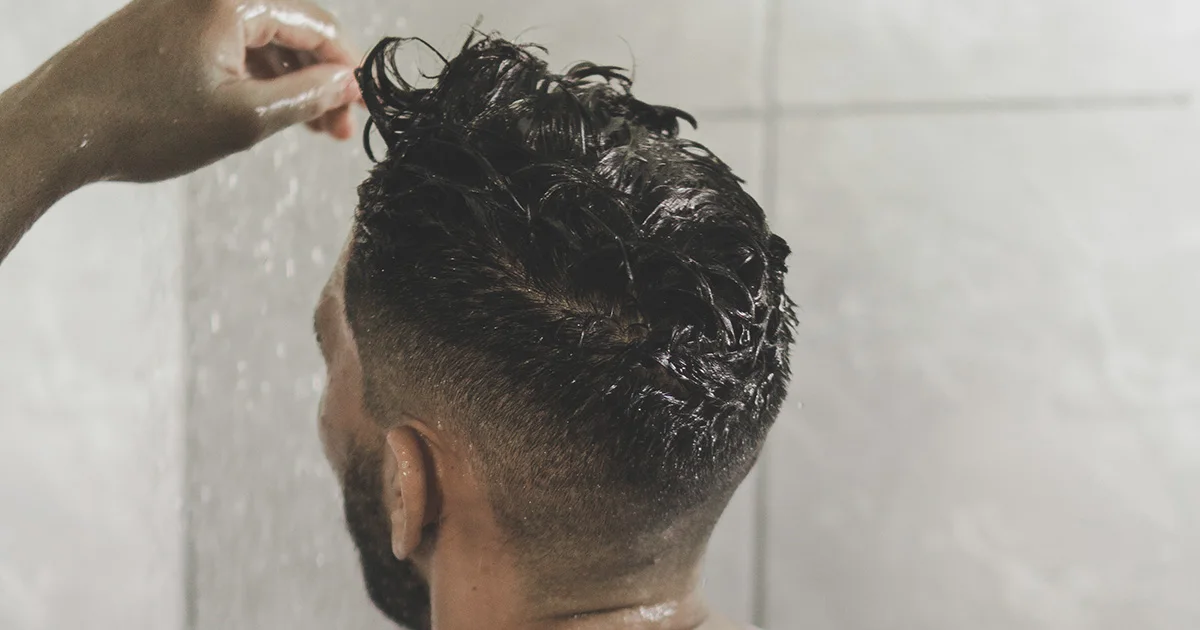Here's what we'll cover
Here's what we'll cover
Here's what we'll cover
Most people keep rosemary in their pantry, but its uses may extend beyond the kitchen. In fact, many people on social media swear by rosemary oil for hair growth. Skeptical? Good—after all, you shouldn't believe everything you see or hear on the internet. That being said, the folks on your screen might actually be onto something. So, is rosemary oil actually good for your hair?
Ahead, we take a closer look at what science and experts say about rosemary oil for hair growth (and hair loss) and break down how to use the ingredient to stimulate strands.
What is rosemary oil?
Native to the Mediterranean region, rosemary is an evergreen shrub that’s now grown worldwide. Rosemary oil is made from the shrub’s leaves and flowers and has long been used in folk medicine as a topical treatment to stimulate hair growth. You’ll also find rosemary oil in many skincare products due largely in part to its anti-inflammatory properties.
How does rosemary oil for hair growth work?
Using rosemary oil for hair growth has become a hot topic on TikTok with influencers and dermatologists debating whether or not it actually works on your strands. But instead of taking their word for it, let’s see what the science has to say, shall we?
A 2015 study compared the effects of rosemary oil to those of minoxidil—the active ingredient and generic version of Rogaine—in 100 male participants with androgenic alopecia, the leading cause of hair loss in men (aka male pattern baldness). After 6 months, individuals who used rosemary oil experienced just as much hair growth as those who used minoxidil 2%. (While this study involved minoxidil 2%, the topical treatment is also available in 5%—the more you know!)
In another study from 2015, 40 men and women with alopecia areata (an autoimmune disorder that causes hair loss) either applied a blend of essential oils (rosemary, thyme, lavender, evening primrose, and cedar) in a mixture of carrier oils (jojoba, grape seed, almond, lemon, and soy oils) or just the carrier oils nightly for 3 months. At the end of the treatment, more than 60% of the individuals who used essential oils nightly experienced “moderate, marked, or dense” hair regrowth compared to the 30% of patients experiencing “moderate” growth in the placebo or carrier oil group. Furthermore, no patients in the placebo or carrier oil group experienced “marked or dense” hair regrowth.
Additionally, animal studies from 2013 and 2023 found that topical application of rosemary oil can help with hair growth in mice. In the latter study, in particular, rosemary oil proved to be more effective at stimulating hair growth than minoxidil 2% in mice.
So, why can rosemary oil help with hair growth? “It’s thought that [rosemary oil] can be used to support hair growth by improving the circulation of the hair follicle and decreasing hair loss in a manner similar to common medical treatments for alopecia like minoxidil (Rogaine),” says Julia Schwartz, MD, Ro Dermatology Advisor.
The herb is loaded with antioxidants that can increase circulation throughout the body, including the scalp. Blood flow is responsible for delivering nourishing and hair growth-promoting oxygen and nutrients to the hair follicles. So, boosted blood flow can be especially effective at stimulating hair growth. (On the flip side, a lack of blood supply to the follicles may play a role in hair loss.)
Rosemary is also antimicrobial. So, if hair loss is caused by a suboptimal microbial environment in the scalp (think: an infection), rosemary oil may help combat pathogens and reduce inflammation potentially leading to improved hair growth. Overall, rosemary oil can help promote a healthy scalp, which is linked to better hair quality and growth.
How to use rosemary oil for hair growth
If you want to use rosemary oil for hair growth, it’s important to do so correctly. In the scientific studies referenced throughout this article, participants didn’t just use rosemary oil once and see results; they used it consistently. While there’s not one recommendation, research suggests that it can take about 6 months of use to notice a difference.
Below are some tips and directions for using rosemary oil for hair growth, according to Dr. Schwartz.
1. Dilute rosemary essential oil
Rosemary essential oil can be a great way to reap the herb’s strand-stimulating rewards. But there are a few (quick!) steps you should take before smearing the oil on your scalp. First, dilute it in a carrier oil, such as coconut, jojoba, or almond oils to avoid irritation, Dr. Schwartz says. (Essential oils by themselves can be highly concentrated.) In general, Dr. Schwartz recommends a ratio of 2–3 drops of rosemary oil per tbsp of carrier oil.
“It should [also] be noted that these oils can lead to clogging of pores and acne, so it’s important to keep the solutions localized to the scalp only and away from facial skin and out of the eyes,” Dr. Schwartz says.
Alternatively, you can look for hair products suited for your hair type that contain rosemary oil, such as shampoos, conditioners, and leave-in conditioners.
2. Do a patch test
Another step to take before using rosemary essential oil (or any new product, for that matter)? Consider “doing a small patch test on your inner forearm to make sure that you don’t have an allergy or irritation to the product,” Dr. Schwartz suggests. If you don’t experience any adverse reactions, you should be good to go.
3. Give yourself a scalp massage
Once you’ve gotten the green light from your patch test and the essential oil is properly diluted, you can apply it directly to your scalp, massaging it in for 2–3 minutes. Giving yourself a scalp massage like such can also help increase blood flow, doubling-down on the effects of rosemary oil and further stimulating hair growth.
If you are using a shampoo, conditioner, or another hair product containing rosemary oil, follow the directions on the item’s packaging to make sure you are using it correctly.
4. Rinse
“For a more intense treatment, leave the oil on your scalp for at least 30 minutes to overnight. You can wear a shower cap to avoid getting the oil on your pillowcase or onto your facial skin,” Dr. Schwartz says, adding that you should rinse it out in the morning with shampoo.
Keep in mind, though, that many experts seem to believe applying excess oil or leaving rosemary oil in your hair for extended periods of time can result in scalp issues, such as clogged hair follicles, which can lead to dandruff and even hair loss. If you experience any side effects, be sure to wash your strands to remove the product. If your symptoms worsen, contact your healthcare provider right away.
What to know before using rosemary oil for hair growth
There are some potential side effects to be aware of when using rosemary oil for hair growth. Some people may experience scalp itching, irritation, or a burning sensation. While it’s important to know these side effects can happen, they tend to be rare. That’s another benefit to trying rosemary oil for hair growth—it’s relatively low-risk.
Alternatives to rosemary oil for hair growth
If you’re dealing with hair thinning or loss, your best course of action is to consult a healthcare provider, such as a dermatologist. They can determine what might be causing your strand-related symptoms and craft an ideal treatment plan accordingly. That being said, there are many different hair loss treatments that your provider may suggest. Here, some alternatives (or additions) to using rosemary oil for hair growth:
Topical treatments
Spend enough time searching the internet for “hair loss solutions” and you’re sure to read plenty about topical treatments, such as, yup, rosemary oil. Another example? Topical minoxidil, which, like Dr. Schwartz mentioned earlier, is thought to work similarly to rosemary oil: by increasing blood flow to promote hair growth. There’s also topical finasteride, a medication that helps inhibit an enzyme that converts testosterone to dihydrotestosterone (DHT) in the hair follicle. This is key because higher levels of DHT in follicles are associated with androgenic alopecia.
That being said, using these two medications together is believed to be more effective for hair loss. You can find them both, alongside tretinoin to boost absorption of the active ingredients—in Ro’s 3-in-1 Spray.
Oral medications
Not into topical treatments? There are oral medications that can also help with hair growth. Oral finasteride and oral minoxidil are both available as once-daily medications, though the former is only for male pattern hair loss. Both of these drugs require prescriptions and come with their own set of risks and benefits—all of which a healthcare provider will discuss if they feel they might be a fit for you and your symptoms.
Finasteride Important Safety Information: Read more about serious warnings and safety info.
Oral Minoxidil Important Safety Information: Read more about serious warnings and safety info.
Healthy diet
Sure, eating a healthy, nutritious diet is essential for overall health and wellness. But it can also play a key role in treating and preventing hair loss. If your strands are top of mind, make sure to pack your plate with foods that are rich in hair-healthy nutrients, such as iron, protein, zinc, niacin, selenium, vitamins D, and E , folic acid, and biotin. Some good examples include:
Eggs
Berries
Spinach
Nuts and seeds
Shellfish
Frequently asked questions
How long should you leave rosemary oil in your hair?
Is it okay to leave rosemary oil in your hair overnight?
How often should you use rosemary oil for hair growth?
How long does it take for rosemary oil to help with hair growth?
DISCLAIMER
If you have any medical questions or concerns, please talk to your healthcare provider. The articles on Health Guide are underpinned by peer-reviewed research and information drawn from medical societies and governmental agencies. However, they are not a substitute for professional medical advice, diagnosis, or treatment.
References
Begum, A., Sandhya, S., Anoop Kumar, N., et al. (2023). Evaluation of Herbal Hair Lotion Loaded with Rosemary for Possible Hair Growth in C57BL/6 Mice. Advanced Biomedical Research. doi: 10.4103/abr.abr_306_21. Retrieved from https://www.ncbi.nlm.nih.gov/pmc/articles/PMC10186041/
Ghasemzadeh Rahbardar, M. & Hosseinzadeh, H. (2020). Therapeutic effects of rosemary (Rosmarinus officinalis L.) and its active constituents on nervous system disorders. Iranian Journal of Basic Medical Sciences, 23(9), 1100–1112. doi: 10.22038/ijbms.2020.45269.10541. Retrieved from https://www.ncbi.nlm.nih.gov/pmc/articles/PMC7491497/
Lepe, K., Syed, H. A., & Zito, P. M. (2023). Alopecia Areata. StatPearls. Retrieved from https://www.ncbi.nlm.nih.gov/books/NBK537000/
Li Pomi, F., Papa, V., Borgia, F., Vet al. (2023). Rosmarinus officinalis and Skin: Antioxidant Activity and Possible Therapeutical Role in Cutaneous Diseases. Antioxidants (Basel, Switzerland), 12(3), 680. doi: 10.3390/antiox12030680. Retrieved from https://www.ncbi.nlm.nih.gov/pmc/articles/PMC10045493/
Malvezzi de Macedo, L., Mendes dos Santos, E., Militão, L., et al. (2020). Rosemary (Rosmarinus officinalis L., syn Salvia rosmarinus Spenn.) and Its Topical Applications: A Review. Plants, 9(5), 651. doi :10.3390/antiox12030680. Retrieved from https://www.ncbi.nlm.nih.gov/pmc/articles/PMC7284349/
Miroddi, M., Calapai, G., Isola, S., et. al. (2014). Rosmarinus officinalis L. as cause of contact dermatitis. Allergologia et. Immunopathologia, 42(6), 616-619. Retrieved from https://www.elsevier.es/en-revista-allergologia-et-immunopathologia-105-articulo-rosmarinus-officinalis-l-as-cause-S0301054613001547
Murata, K., Noguchi, K., Kondo, M., et al. (2013). Promotion of hair growth by Rosmarinus officinalis leaf extract. Phytotherapy Research : PTR, 27(2), 212–217. doi: 10.1002/ptr.4712. Retrieved from https://pubmed.ncbi.nlm.nih.gov/22517595/
Murphrey, M. B., Agarwal, S., & Zito, P. M. (2023). Anatomy, Hair. StatPearls. Retrieved from https://www.ncbi.nlm.nih.gov/books/NBK513312/
Ozmen I., Caliskan E., Arca E., et al. (2015). Efficacy of aromatherapy in the treatment of localized alopecia areata: a double-blind placebo controlled study. Gulhane Medical Journal, 57(3), 233. doi: 10.5455/gulhane.38258. Retrieved from https://www.researchgate.net/profile/Ibrahim-Ozmen/publication/283874591_Efficacy_of_aromatherapy_in_the_treatment_of_localized_alopecia_areata_A_double-blind_placebo_controlled_study/links/56782bbb08ae502c99d564c9/Efficacy-of-aromatherapy-in-the-treatment-of-localized-alopecia-areata-A-double-blind-placebo-controlled-study.pdf
Paiewonsky, B., Heinen, N., Hordinsky, M., et al. (2023). Hairfluencer social media trends every dermatologist should know in 2021. Journal of Cosmetic Dermatology, 22(2), 669–670. doi: 10.1111/jocd.15123. Retrieved from https://www.ncbi.nlm.nih.gov/pmc/articles/PMC10083897/
Panahi, Y., Taghizadeh, M, Tahmasbpour Marzony, E., et al. (2015). Rosemary oil vs minoxidil 2% for the treatment of androgenetic alopecia: a randomized comparative trial. Skinmed, 13(1), 15-21. Retrieved from https://pubmed.ncbi.nlm.nih.gov/25842469/
Piraccini, B. M., Blume-Peytavi, U., Scarci, F., et al. (2022). Efficacy and safety of topical finasteride spray solution for male androgenetic alopecia: a phase III, randomized, controlled clinical trial. Journal of the European Academy of Dermatology and Venereology : JEADV, 36(2), 286–294. doi: 10.1111/jdv.17738. Retrieved from https://www.ncbi.nlm.nih.gov/pmc/articles/PMC9297965/
Rafael de Oliveira, J., de Jesus, D., Wagner Figueira, L., et al. (2017). Biological activities of Rosmarinus officinalis L. (rosemary) extract as analyzed in microorganisms and cells. Experimental Biology and Medicine, 13(1), 15-21. doi: 10.1177/1535370216688571. Retrieved from https://www.ncbi.nlm.nih.gov/pmc/articles/PMC5685262/
Rajput, R. J. (2022). Influence of Nutrition, Food Supplements and Lifestyle in Hair Disorders. Indian Dermatology Online Journal, 13(6), 721-724. doi: 10.4103/idoj.idoj_175_22. Retrieved from https://www.ncbi.nlm.nih.gov/pmc/articles/PMC9650738/
Suchonwanit, P., Srisuwanwattana, P., Chalermroj, N., & Khunkhet, S. (2018). A randomized, double-blind controlled study of the efficacy and safety of topical solution of 0.25% finasteride admixed with 3% minoxidil vs. 3% minoxidil solution in the treatment of male androgenetic alopecia. Journal of the European Academy of Dermatology and Venereology : JEADV, 32(12), 2257–2263. doi: 10.1111/jdv.15171. Retrieved from https://pubmed.ncbi.nlm.nih.gov/29972712/
Trüeb, R. M., Henry, J. P., Davis, M. G., & Schwartz, J. R. (2018). Scalp Condition Impacts Hair Growth and Retention via Oxidative Stress. International Journal of Trichology, 10(6), 262–270. doi: 10.4103/ijt.ijt_57_18. Retrieved from https://www.ncbi.nlm.nih.gov/pmc/articles/PMC6369642/
Ufomadu, P. (2024). Complementary and alternative supplements: a review of dermatologic effectiveness for androgenetic alopecia. Proceedings (Baylor University Medical Center), 37(1), 111-117. doi: 10.4103/idoj.idoj_175_22. Retrieved from https://www.ncbi.nlm.nih.gov/pmc/articles/PMC10761108/


